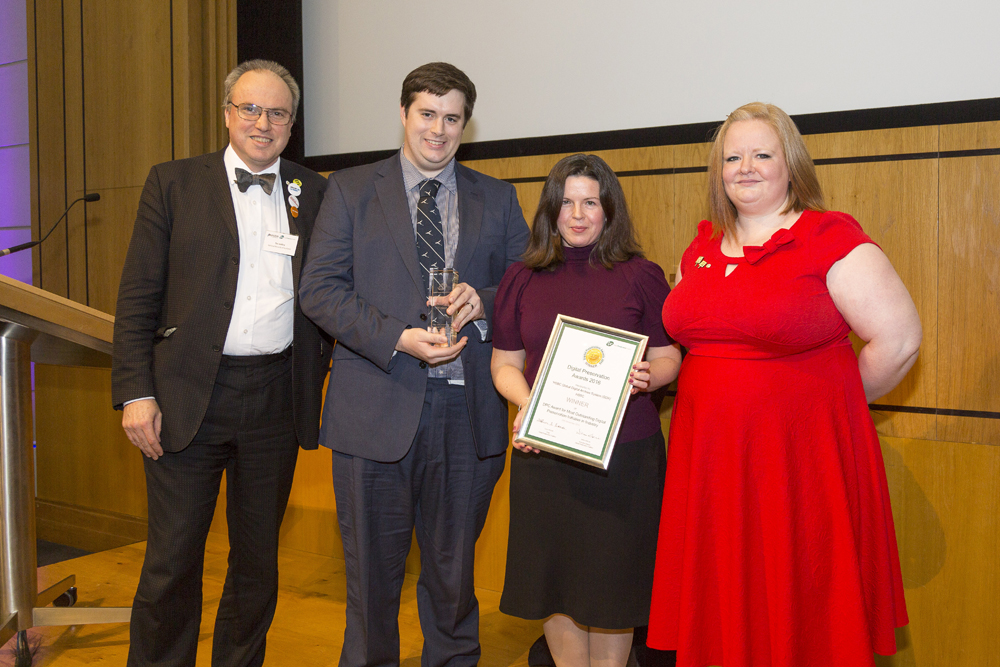James Mortlock is Digital Archives Manager at HSBC in London, UK
HSBC’s digital archive journey began back in 2011 when we first sat down to develop a set of requirements for a system that would manage and preserve our growing born digital and digitised collections. This process developed into an exciting digital preservation project that was supported by senior management. After many years of hard work and collaboration by the archives team, our internal IT colleagues and external vendors we were able to launch the HSBC Global Digital Archive system (GDA) in 2015, just in time to support HSBC’s 150th anniversary celebrations. The following year, in November 2016, the success of the project was recognised when it received the Digital Preservation Award for Most Outstanding Digital Preservation Initiative in Commerce, Industry and the Third sector.
We have constructed an archival management and digital preservation system that provides a cohesive view of the HSBC Archives collections and preserves digital content over the long-term. The system supports the management of all of HSBC Archives physical assets, digital copies and born-digital records collected and held by the archives across four regional collections located in London, Hong Kong, Paris and New York. It provides secure storage, access and long term preservation for all digital records and an integrated cataloguing system allowing synchronisation of metadata between physical and digital materials. As Digital Archives Manager, I am proud that the system now underpins the work of all the HSBC archives, giving our global team of archivists the tools to consistently catalogue records, ingest and preserve digital materials and search and retrieve across collections. All archivists at HSBC are as much digital archivists as they are physical archivists – and we have developed a system that supports the management of both.
The Digital Preservation Award takes pride of place in the entrance of our London archive centre and has been important in raising the profile, both within HSBC and the archives profession, of the integrated physical and digital archival management approach we are progressing. Since receiving the award, my colleagues in the HSBC digital archive team and I have spoken at conferences in the UK, France and Canada and participated in many webinars and other advocacy events. These activities showcase how we manage and develop the HSBC digital archive system, but also the vital importance of digital preservation in the daily working life of all those employed in archives, records and information management.

The receipt of the award has also encouraged our continued commitment to digital preservation. Whilst the award recognised our efforts to create the platform, capacity and capabilities for long term access to HSBC’s digital archives, it was next crucial to ensure that this was fully utilised. The production of a comprehensive digital preservation policy was a vital goal. The preservation policy is now in place and provides guidance on preferred ingest formats, procedures to identify at risk format categories and active migration pathways for records that need to be moved to more stable platforms. When going through the UK Archive Service Accreditation process, both the strength of the system’s infrastructure alongside our preservation policy were referenced as important benchmarks for our commitment to digital preservation.
The generous support that we received from colleagues in the digital preservation community during the initial project greatly contributed to its successful implementation and we have been eager to repay this assistance. Following the public recognition that the award gave us, we have received many requests from peers to help review their digital preservation plans. We have been happy to help where we can and hope that we have encouraged a greater number of digital preservation initiatives across the sector. The excellent digital preservation projects that we have seen, have in turn, influenced our system enhancement activities.
I would like to conclude this blog post by thanking the digital preservation community for their time and support over the past few years and wish the nominees of the forthcoming Digital Preservation Awards the very best of luck. I am fortunate to be working in an organisation that recognises the benefits that a strong digital preservation policy and infrastructure can bring. I hope World Digital Preservation Day succeeds in raising awareness about the importance of maintaining long term access to the records we are creating today.
